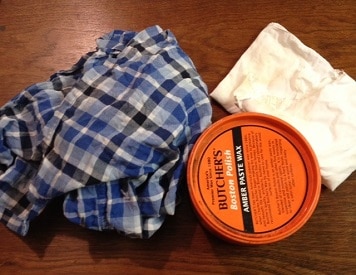HOW TO TAKE CARE OF FOR CHAIR
What Are the Best Ways to Take Care of Your New College Chairs?
First, do not use harsh chemicals, solvents, or chemical wipes to clean your college chair. Instead, wipe the wood surface with a soft, damp cloth, and use a soft, dry cloth to dry. Then, maintain moderate temperatures, and avoid direct sunlight. Keep your shipping carton in case you move. Avoid extremes and use your common sense for the best chair care.

Avoid Extremes & Use Common Sense to Take Care of your Chair
As builders of Alumni Chairs, we take great pride as we create beautiful finishes on our wooden college chairs. At all steps of the production process we are committed to meeting your highest standards and highest expectations for finish and appearance. This is why we emphasize careful Chair Care to protect your valuable wooden chairs.
There are many ways by which wooden college chairs and upholstered college chairs can be stained and damaged. Although we guarantee our chairs, we can only guarantee chairs that have been well treated and not damaged or mistreated. Below are some important guidelines regarding how to preserve wood, how to protect upholstery, and how to ensure the beauty of your wooden and upholstered college chairs. Be careful to protect wooden chairs.
If you have any questions about chair care and the finish of your Alumni Chairs, furniture care protection, how to preserve wood, how to protect upholstery, and protect leather chair from cat, please phone us at 866.748.2230.
Basic Chair Care
Do not use harsh cleaning fluids, alcohol, other solvents, chemical wipes, disinfectant wipes, or bleach wipes to clean your chair’s wooden or upholstered surfaces. Such fluids and cleaning materials can permanently alter the surfaces and void any warranty of your college chair’s surface. Use only a soft, damp, absorbent cotton cloth for cleaning surfaces of your wooden college chair. Then, use a dry, soft, cotton cloth to remove all traces of moisture.
Do not place hot objects on the surfaces of your chairs. If a wood surface is burned or scorched, seek the assistance of a furniture professional.
Do not place plastic materials on the wood of your wooden college chairs; plastic compounds can cause damage as the molecules of plastic materials can migrate to the finish and change the appearance you the wood finish.
Leather objects can also cause damage to finishes as they emit moisture or chemicals that can harm a chair finish.
Do not cover furniture for prolonged periods of time – especially with air-tight, unbreathable covers. Chairs need to breathe to retain durability and appearance.
Do not lean back two legs of your chairs. Your chairs have four legs for a reason. Do not use the horizontal chair stretchers as foot rests. They are not made for such stress and your shoes will harm the surfaces.
Lift objects from your chair arms and seats. Do not slide or drag objects from your chair surfaces. Avoid abrasion on matte or semigloss surfaces.
Dust your chairs regularly with a soft white slightly damp cloth. A clean, old T-shirt is a great choice. Next, use a dry cotton cloth to remove all traces of moisture.
Gently vacuum your upholstered seats.
Repair any deep scratches or punctures with the help of a furniture repair specialist.
Water marks may diminish or disappear over time. However, if a water mark persists, one can carefully apply a small amount of vegetable oil and rub in with a soft white cotton cloth.
Liquids can be blotted from your char with a cloth immediately after a spill. Immediate action is the best course of care in the case of spills in order to avoid absorption.
Alcohol can damage chair finished. Alcoholic beverages, colognes, and other fluids containing alcohol should not be allowed to contact your finishes.
Water-based paints can be wiped off immediately with a soft cloth. A clean damp cloth should be used to clean the surface completely. Then, use a dry cloth to remove all traces of moisture.
Nail polish and nail-polish remover should not be wiped from wood surfaces but be immediately blotted with a cloth or paper towel. Such chemicals are very damaging to your wood finishes.
Newspapers bear transferable ink that can damage your chairs. Be careful to avoid prolonged contact with newspapers.
Lift your chairs to move them. Do not drag your chairs.
Leather and fabric upholstered chairs should be protected from hair and body oils. Place a cloth where hair or bodies may come in contact with upholstery repeatedly.
Be careful to not snag or tear your upholstery with jewelry, belt buckles, or other sharp objects.
If you have any questions about chair care and the finish of your Alumni Chairs, furniture care protection, how to preserve wood, how to protect upholstery, and protect leather chair from cat, please phone us at 866.748.2230.
Environment is Critical for Chair Care
Wooden furniture can best be preserved at moderate temperatures. Temperatures.in the upper 60’s (F) and lower 70’s are the best for your hardwood college chairs. Be sure to avoid extended exposure to heat and cooling from the heating/cooling systems of your home and office.
Avoid exposure to sunlight. Ultraviolet light is potentially very damaging to wood and upholstery.
Dry air causes wood to lose moisture and shrink. Damp air causes absorption and resultant expansion. Natural changes in weather (heat and humidity) may not damage your hardwood chairs, but extremes can be a problem. Moderate conditions are best for your wooden college chairs.
Storage of Your Chairs
Do not store your chairs in hot or damp conditions. Allow air to circulate around your chairs and avoid stacking objects on your chairs- especially heavy objects.
Again, if you have any questions about chair care and the finish of your Alumni Chairs, furniture care protection, how to preserve wood, how to protect upholstery, and protect leather chair from cat, please phone us at 866.748.2230.
